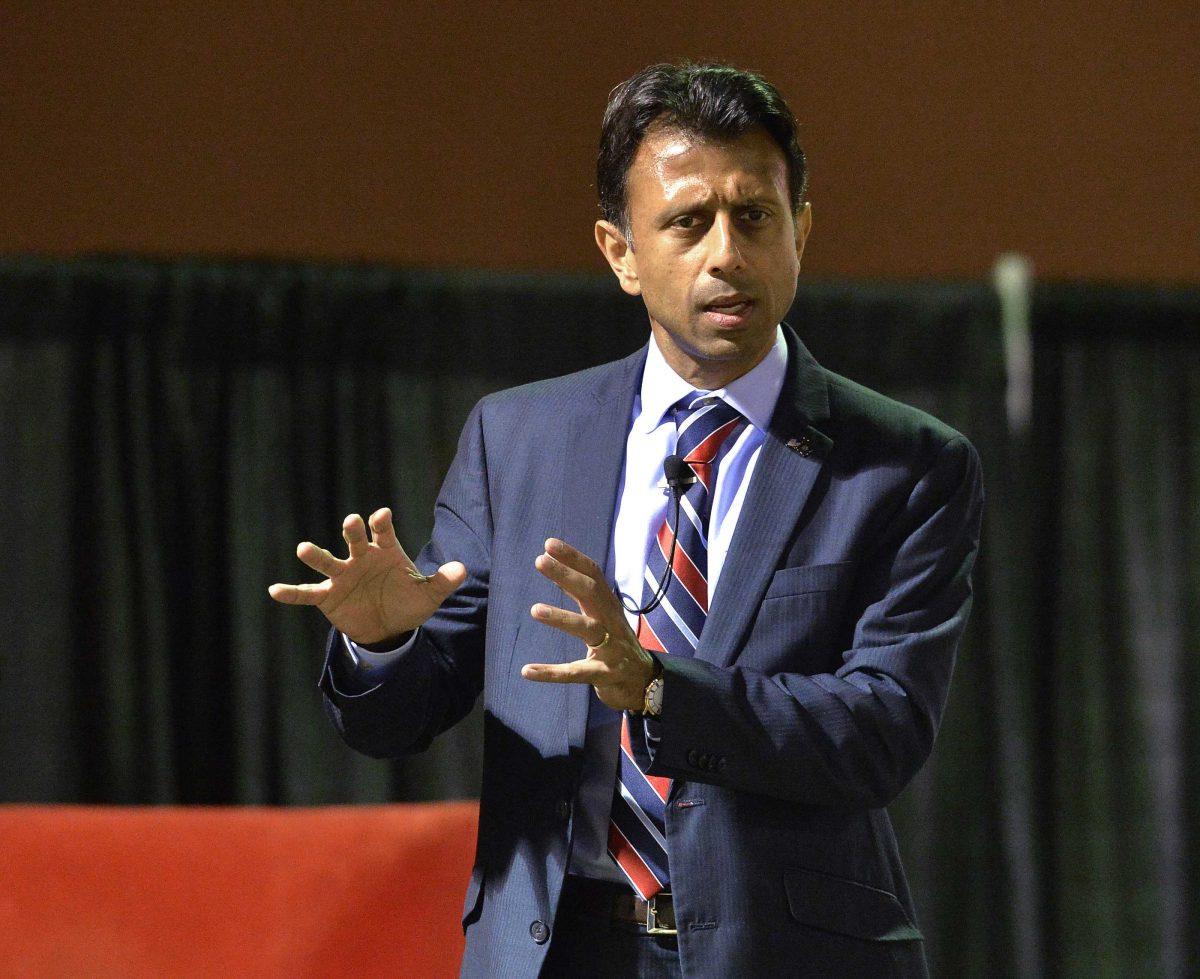Gov. Bobby Jindal prays for the spiritual revival of American traditional values but ignores one of the greatest evils our nation faces — child
poverty.
Bring up child poverty and most of Jindal’s conservative allies will claim premarital sex and the degradation of the American family are the reasons for the daunting 16 million children living below the federal poverty line
throughout the U.S.
Life below the federal poverty line — $23,550 a year for a family of four — is a life of malnutrition, little sleep and a mockery of the childhood portrayed in American culture.
The Children’s Defense Fund reported increasing investments to employment programs, work payment policies and childcare by two percent in the federal budget could reduce child poverty by 60 percent, taking approximately 6.4 million children out of poverty.
According to the Kids Count Data Center, Louisiana’s child poverty rate rests uncomfortably at 28 percent. We have the third worst child poverty rate in the nation.
Louisiana needs to focus more time on tackling child poverty and less time playing into Jindal’s political campaign for president. Jindal’s followers point to a lack of family values for the increase of poverty.
A war in the name of traditional family values does nothing for the children in poverty today.
One could make an argument that teaching traditional family values could help stop poverty in the future, but I’m skeptical. Premarital sex will still occur. Out-of-wedlock births won’t disappear. Single mothers will still raise their kids, as will gays and lesbians.
Will Jindal and his posse punish children because they abhor premarital sex and same-sex marriage?
Clearly, out-of-wedlock births contribute to the high number of impoverished children in America, but they are not the primary factor. Poverty is a perpetual and vicious cycle that will never find solitude.
However, we can minimize the amount of children and families the violent whirlpool pulls in.
Poor educational standards and inadequate mental health services are two of the many reasons for the never-ending nightmare of poverty.
“Poverty in the world is a scandal,” Pope Francis said at a speech to students of Jesuit schools in 2013. “In a world where there is so much wealth, so many resources to feed everyone, it is unfathomable that there are so many hungry children.”
The Pope’s words resonate under the oak tree canopies on Highland Road in Baton Rouge.
Three miles south of LSU’s campus on Highland Road is reminiscent of Beverly Hills, California. Aston Martins and Bentleys sit in the driveways of three-story mansions with guarded front gates. Grocery stores and retail stores are only a mile or two away.
Drive back to LSU, go five miles north, and it hits you. Old, dilapidated shotgun houses with broken-down cars sitting on the lawn. No grocery stores in sight.
Bikes are the means of travel north of LSU’s campus. You won’t find any Aston Martins or Bentleys. The five- mile contrast on Highland is startling. Perpetuated by the failures of our education system, the difference between south and north on Highland isn’t set to change anytime soon.
Jindal’s education reforms fail to go deep enough into societal problems that create low success rates among our state’s students. His reforms use teachers as scapegoats, ignoring obstacles such as student mental health and learning disabilities.
To solve Louisiana’s embarrassing education problems, state legislators need to push for in-depth reforms that look into diversifying learning techniques, addressing mental health issues and make the community accountable for a child’s education.
The first step we can take is creating a substantive education reform that does not solely blame teachers. We need comprehensive reform that can break future generations out of the cycle of poverty.
Investing in our children’s educational future is investing in diminishing Louisiana property.
Justin DiCharia is a 20-year-old mass communication junior from Slidell, Louisiana. You can reach him on Twitter @JDiCharia.
Opinion: Investing in education could help decrease poverty in Louisiana
February 4, 2015
FILE – In this Oct. 29, 2014 file photo, Louisiana Gov. Bobby Jindal speaks in Louisville, Ky. Jeb Bush and Mitt Romney are getting most of the attention in the early days of the Republican race for president. But as they court the party’s elite donors, some potential 2016 candidates who are to the right are just as eagerly chasing early support among evangelicals and social conservatives. (AP Photo/Timothy D. Easley, File)
More to Discover








